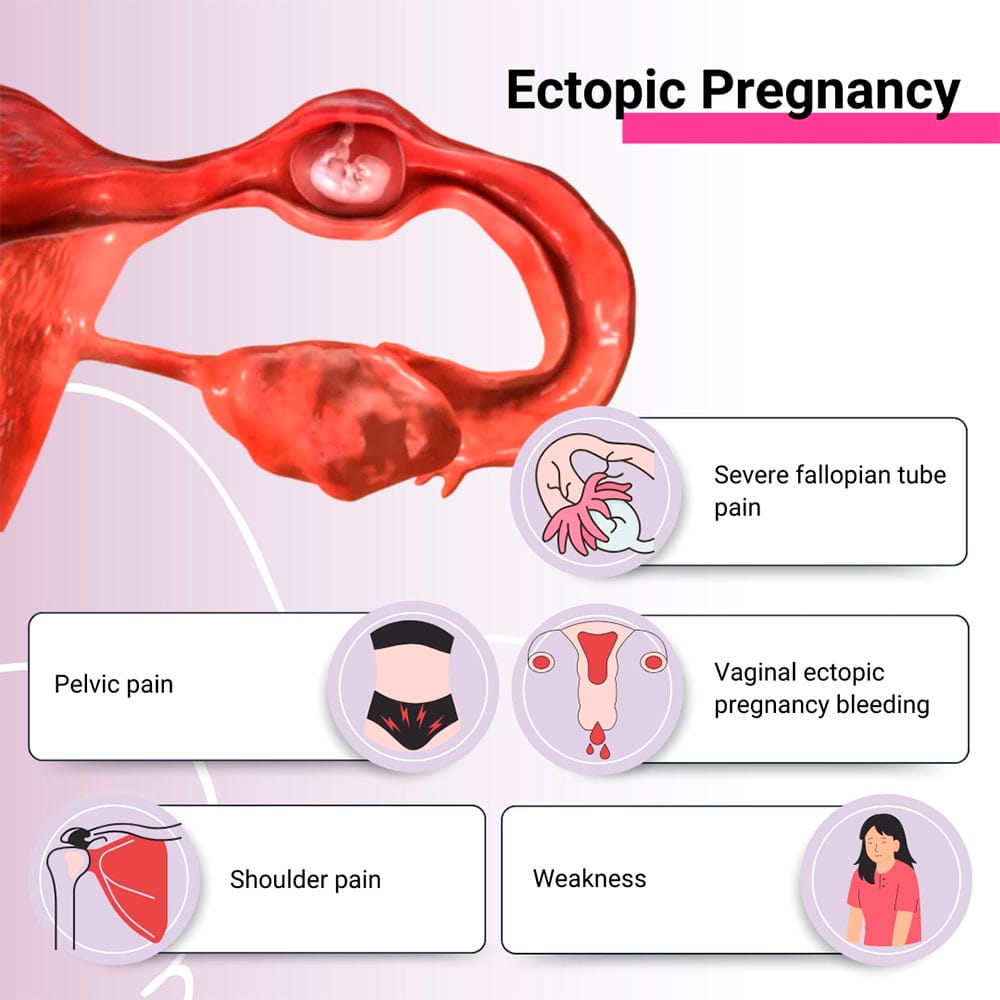What Is an Ectopic Pregnancy?
A pregnancy where a fertilized egg implants outside the uterus is known as an ectopic pregnancy. Typically, it occurs in the fallopian tubes and often is referred to as a tubal pregnancy. Another rare condition, known as heterotopic pregnancy, may happen when one embryo implants in the uterus and another is outside the uterus.
Sometimes the egg implants in the ovaries, abdomen or cervix. A tubal pregnancy cannot progress to full term, as the growing embryo may cause the affected organ to rupture.
Common signs and symptoms include:
- Severe fallopian tube pain
- Pelvic pain
- Vaginal ectopic pregnancy bleeding
- Shoulder pain
- Weakness
Cohen Medical Practice (CMP) in Midtown NYC specializes in women’s health and has extensive experience dealing with ectopic pregnancy pain and its associated treatments. Medical director Dr. Felix Cohen and his team are board certified gynecologists with experience treating ectopic pregnancies and other gynecological conditions, ranging from endometriosis and ovarian cysts to PMS and bladder prolapse.

What Can Happen if an Ectopic Pregnancy Goes Untreated?
If your ectopic pregnancy goes untreated, it may rupture your fallopian tubes, which causes extreme fallopian tube pain and ectopic pregnancy bleeding. It’s considered a serious medical emergency that you shouldn’t ignore.
Potential complicated symptoms if your ectopic pregnancy is left untreated include:
- Hemorrhagic shock
- Damage to organs
- Infertility
- Even death
If you have an intrauterine device (IUD) and you feel like you may be pregnant, then you shouldn’t ignore the signs. There’s a greater chance you have an ectopic pregnancy.
Signs of pregnancy with an IUD include:
- Missed period
- Positive pregnancy test
- Cramping and extreme pelvic pain
- Vaginal bleeding
- Nausea
- Breast tenderness
What Causes Ectopic Pregnancies?
Ovarian cysts related to polycystic ovarian syndrome (PCOS) increase the chances of an ectopic pregnancy. The ectopic pregnancy statistics are shocking, as roughly one to two percent of pregnancies are ectopic, resulting in six percent of all maternal deaths.
Women with endometriosis are at higher risk of having it, and if you’re having abnormal uterine bleeding or other symptoms of ectopic pregnancy, visit your CMP gynecologist right away. Symptoms generally start between the fourth and twelfth weeks of pregnancy. Ectopic pregnancies are dangerous and are caused by conditions that slow down or block the movement of the egg down your fallopian tube.
If fallopian tubes are damaged or have any issues, it prevents the egg from moving into the uterus.
Other causes may include:
- Pelvic inflammatory disease, caused by sexually transmitted infections like chlamydia or gonorrhea that lead to scarring and damage to fallopian tubes
- Previous surgery, as women who’ve had an ectopic pregnancy before may get it again
- An intrauterine device, because signs of pregnancy with an IUD increase the chance of ectopic pregnancy
- Fertility treatment, as procedures like in vitro fertilization (IVF) increase the risk of ectopic pregnancies
- Smoking, of which another side effect is an increase in the chances of getting ectopic pregnancies
How Is Ectopic Pregnancy Diagnosed?
Diagnosing an ectopic pregnancy may involve different types of diagnostic tools. Only by combining them, can your doctor confirm the diagnosis. The first step is to provide your doctor with a medical history about your menstrual cycles and other symptoms you may be having.
The next steps in the diagnostic process include:
- Pelvic exam
- Beta-human chorionic gonadotropin levels test
- Complete blood count
- Transvaginal ultrasound
- Abdominal ultrasound
- Sonohystogram
Once you receive a definitive diagnosis, treatment must be swift. In many cases, timing is important because if left untreated, you could die. The fetus isn’t viable, so there’s no chance of saving its life. Your doctor now is concerned with your health and preserving your ability to conceive in the future.
What Are My Treatment Options for an Ectopic Pregnancy?
Treating ectopic pregnancy involves ending the pregnancy. Since it can’t progress to full term, ectopic pregnancy abortion is the main target. The approach to this treatment option varies depending on the ectopic pain location, size and other complications.
Common treatment options include:
- Using methotrexate to dissolve the pregnancy. It suddenly stops the growth of the cells of ectopic pregnancy and often is prescribed when the ectopic pregnancy is small and early, making methotrexate ectopic pregnancy a common approach.
- Laparoscopic surgery involves making a small incision in your abdomen to locate and remove the ectopic pregnancy, and sometimes a part or even all of a damaged fallopian tube.
- Open surgery is also an option, reserved for complicated and severe cases where any organ has ruptured.
Your recovery time from ectopic pregnancy depends on the emergency treatment you received. Medicinal treatment usually requires proper monitoring and recovery is expected in a few weeks, whereas in laparoscopy, you may be fully recovered in about two to three weeks. Open surgery takes a longer time to recover from because of the large incision and could take up to six weeks.
Can I Prevent an Ectopic Pregnancy?
Preventing an ectopic pregnancy is difficult as some risk factors are out of your control. But you can take some measures to reduce the risks of having an ectopic pregnancy. Get timely and proper treatment for STIs, quit smoking and get treatment for other medical conditions that can cause or lead to an ectopic pregnancy.
Allow Dr. Cohen to do your annual gynecological exams to nip those conditions in the bud before they lead to more serious consequences. Meanwhile, if you have ectopic pregnancy pain, don’t wait, as it may impact your fertility. Contact Cohen Medical Practice (CMP) immediately.

